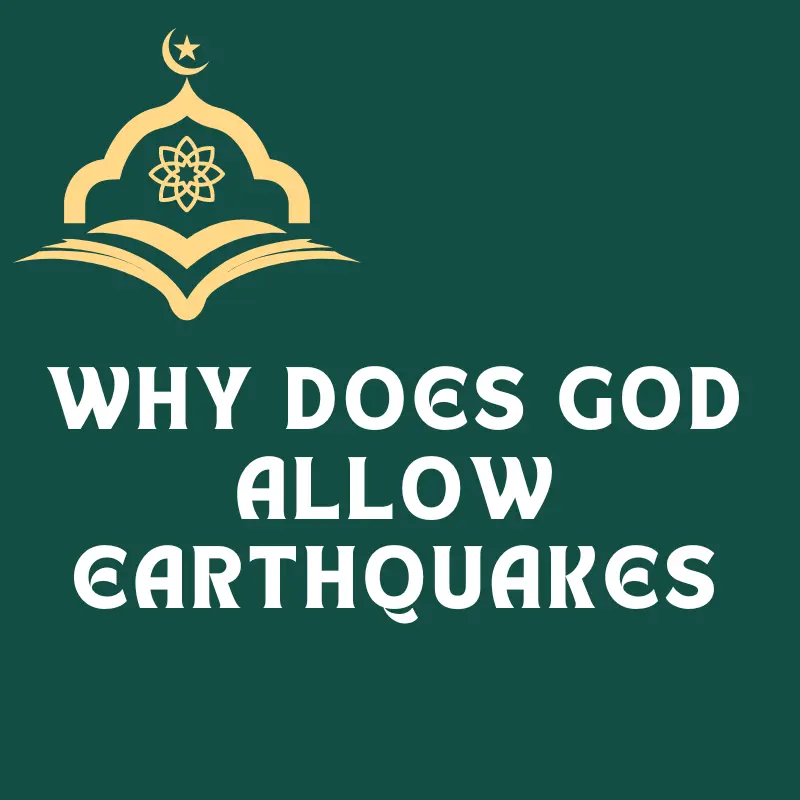why does god allow earthquakes
Unraveling the Divine Plan: Why Does God Allow Earthquakes? Earthquakes are powerful natural phenomena that can cause devastation and loss of life. Many people wonder why a benevolent God would allow such disasters to occur. In this comprehensive article, we will delve into the complex question of why God allows earthquakes. Drawing on expert insights and a deep understanding of theology, we will explore the various reasons and perspectives behind this phenomenon. Join us as we seek to unravel the mysteries and find meaning in the occurrence of earthquakes.
The Nature of Earthquakes
Before delving into the theological aspects, it is crucial to understand the scientific nature of earthquakes. Explain the causes of earthquakes, including tectonic plate movements and seismic activity. Provide a brief overview of the geological processes that contribute to earthquakes.
God’s Creation and Natural Laws
God’s creation operates under natural laws, which include the movements of the Earth’s tectonic plates. These laws govern the dynamics of our planet and contribute to its balance and evolution. Explore the concept of natural laws and how they operate independently of human desires or interventions.
Earthquakes as a Result of a Broken World
Earthquakes can be seen as a consequence of living in a broken and imperfect world. Discuss the theological concept of the Fall and how it brought about the introduction of suffering and natural disasters. Explain how earthquakes are a part of this fallen world and its brokenness.
Shaping the Earth’s Landscape
Earthquakes play a significant role in shaping the Earth’s landscape over time. They contribute to the formation of mountains, valleys, and other geological features. Highlight the long-term effects of earthquakes in sculpting our planet’s surface and how they contribute to its geological diversity.
Human Agency and Earthquake Preparedness
While earthquakes are a natural occurrence, human actions and choices can influence the level of impact and damage they cause. Discuss the importance of earthquake preparedness, building codes, and early warning systems. Emphasize the responsibility humans have in minimizing the loss of life and property during seismic events.
Does God directly cause earthquakes?
According to theological beliefs, God created natural laws that govern the world. Earthquakes occur as a result of these natural laws rather than being directly caused by God.
Are earthquakes a form of punishment from God?
Many religious traditions do not view earthquakes as punishments from God but rather as a consequence of living in a fallen world. However, different theological interpretations exist, and some religious perspectives may associate earthquakes with divine judgment.
Can prayers prevent earthquakes?
While prayer is a powerful spiritual practice, it is important to recognize that earthquakes are a natural occurrence governed by geological processes. Prayers can provide comfort, strength, and guidance during times of crisis, but they may not directly prevent earthquakes.
When God Uses Earthquakes:
Throughout history, earthquakes have been associated with divine intervention in various religious beliefs. In some cases, God has been depicted as using earthquakes to deliver messages or enact judgment. For example, in the Bible, earthquakes are mentioned in connection with significant events, such as the resurrection of Jesus or the destruction of cities like Sodom and Gomorrah. These instances suggest that God can utilize earthquakes as a means to reveal His power and bring about significant changes in the world.
Is Earthquake a Wrath of God?
The belief that earthquakes are a manifestation of God’s wrath is present in certain religious teachings. Some view natural disasters, including earthquakes, as a form of divine punishment for human wrongdoing. This perspective suggests that when societies deviate from moral or ethical standards, God may choose to use earthquakes as a means of retribution or correction. However, it’s important to note that not all religious traditions interpret earthquakes as expressions of God’s wrath, and different theological perspectives exist on this matter.
What Does God Say About Natural Disasters?
Religious texts offer insights into how God views natural disasters. They often emphasize the unpredictability and power of nature, acknowledging that natural disasters can cause suffering and destruction. However, they also convey messages of comfort, guidance, and hope during times of calamity. These texts encourage believers to seek solace in their faith, trust in God’s providence, and extend support and compassion to those affected by natural disasters. They emphasize the importance of unity, resilience, and using these challenges as opportunities for growth and spiritual reflection.
Why Does Allah Allow Earthquakes?
In Islamic theology, earthquakes are viewed as part of Allah’s divine plan and creation. Allah’s wisdom and sovereignty encompass all aspects of life, including natural phenomena. While earthquakes may bring destruction and loss, they are seen as tests of faith and reminders of human vulnerability and reliance on Allah. The Quran emphasizes the need for believers to respond with patience, compassion, and assistance in the face of calamities. Muslims are encouraged to turn to Allah in prayer, seek His guidance, and work towards alleviating the suffering caused by earthquakes, reflecting the values of mercy and social responsibility taught by Islam.
The question of why God allows earthquakes is a profound and complex one. Through this exploration, we have gained insights into the scientific and theological aspects surrounding this phenomenon. Earthquakes are a part of the natural world, governed by laws and processes that contribute to the Earth’s balance and evolution. They remind us of the brokenness of our world and the need for preparedness and responsible stewardship. While we may never fully understand the purposes behind earthquakes, we can find solace in our faith, support one another, and work towards minimizing their impact on human lives.








